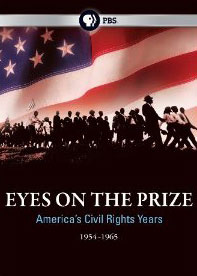How to Conduct Documentary Interviews, Part 1
Last month one of my story consulting clients flew across the country so I could interview her for her personal documentary. We knew we would use parts of the interview as the film’s chief storytelling voice, so eliciting answers we could use as narration in post-production was particularly important.
Preparing for the interview, I employed two effective techniques that I want to share with you here. The first, which I’ll share this week, comes from PBS producer Jon Else, a co-producer for the award-winning “Eyes on the Prize” series. The second is my own invention, having helped hundreds of filmmakers shape their documentaries and knowing exactly the kind of interview statements needed to craft a well-structured film. Look for the second technique next week, in part 2 of this series.
The first technique involves how you start your inquiry. As you ask the obvious questions about your character’s story or your authority’s area of expertise, phrase your questions in a way that avoids “yes” or “no” answers. You also want to avoid one word answers that make no sense without the question.
For example, avoid asking a question like, “Why did John abandon the project?” You might get an answer like, “Because he was burned out.” Obviously you can’t use a line that begins with “because” (unless you write narration to set it up).
You’ll get more set up information if phrase your question with a two or three word preface such as “tell me” or “explain to me”. For example, “Tell me why he abandoned the project.” Can you see how that sentence invites the viewer to not only say John’s name, but give the background information needed so the answer stands on its on as a complete thought?
Another effective phrase you can use to preface your inquiries is “describe”. For example, “Describe his state of mind when he decided to abandon the project.” Or, “Describe the dilemma he faced.”
To make the interview feel more conversational, add your own experience, opinions or statement of fact before asking the question. Do some of the talking yourself.
For example, in my interview with my filmmaker client, I wanted to ask a question that evoked the inciting incident that sparked her quest. I said, “I’m going skydiving on Sunday for my 50th birthday. I’m bringing three friends and I’m really excited about it! Your experience jumping out of plane was a little different. Tell me about your mother pushing you into it.” (Notice that I left out the word “skydiving” making it more likely that she will use the word in her answer.)
For more information on how to structure award-winning documentary films, check out my most popular online seminar, priced at $237. “The Ultimate Guide to Structuring Your Documentary” is at:
